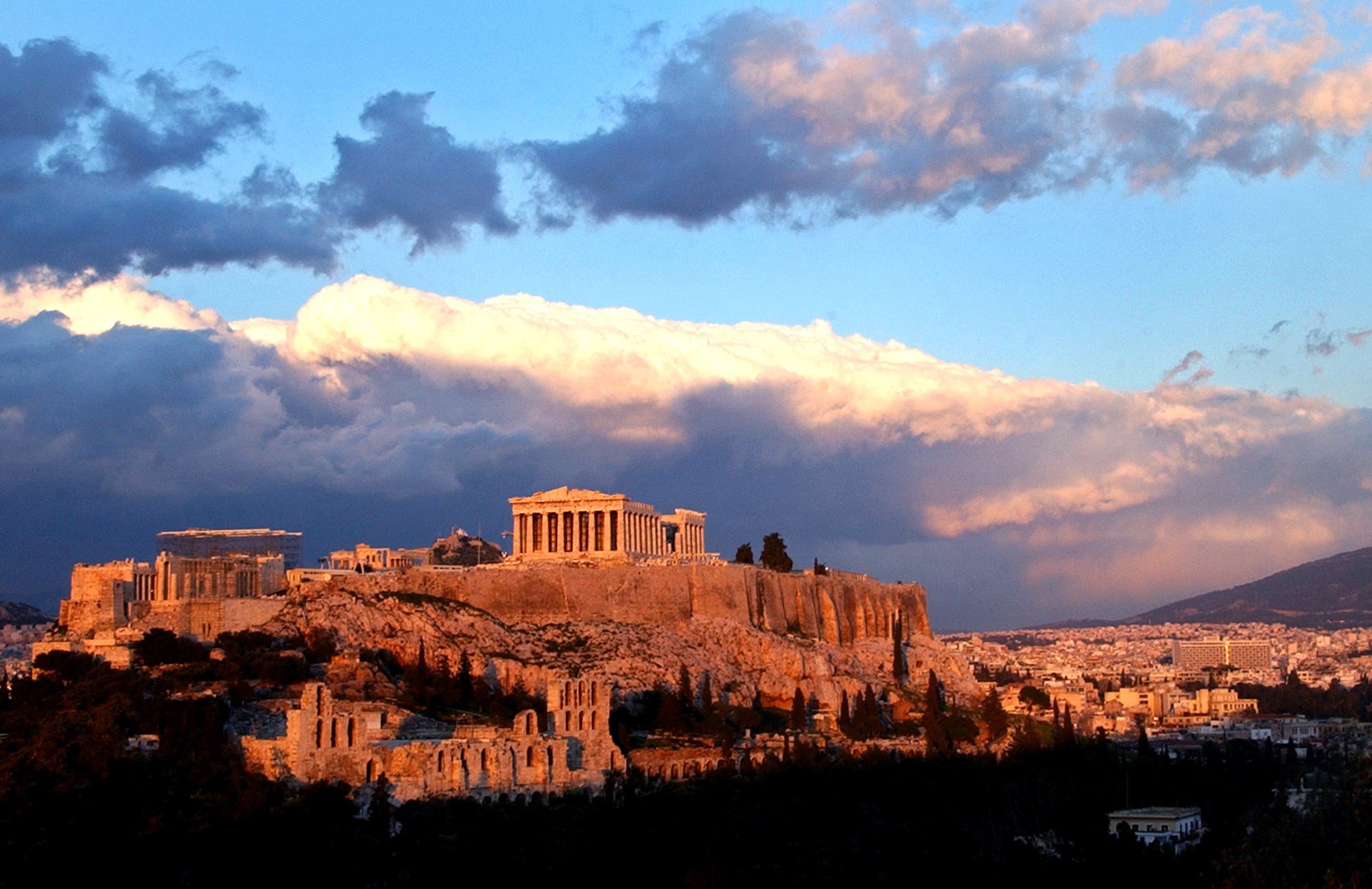Greece to implement a daily limit of 20,000 visitors to Acropolis
The Acropolis of Athens, Greece's most visited archaeological landmark, will be limited to 20,000 visitors per day beginning next month.
-

Sunlight catches clouds behind the ancient Acropolis in Athens on Tuesday, Feb. 3, 2004. (AP)
The number of people allowed to visit Greece's most famous ancient site will soon be limited to 20,000 per day.
The Greek government said on Wednesday that visitors to the Acropolis in Athens will be limited to that quota starting next month, with hourly admission limits based on the time of day.
Greek Culture Minister Lina Mendoni stated that additional regulations are necessary to avoid bottlenecks and overcrowding, according to the Associated Press. The UNESCO World Heritage site has had up to 23,000 visitors every day, with the majority of them arriving in big groups before noon. “The measure will address the need to protect the monument, which is the main thing for us, as well as (improving) visitors’ experience of the site,” Mendoni told the Associated Press.
Mendoni described it as a "huge number" in an interview with Real FM radio network, adding “Obviously tourism is desirable for the country, for all of us. But we must work out how excessive tourism won’t harm the monument.”
Read next: Greece's largest museum to undergo four-year upgrade
According to the cultural ministry, the new admission limits will be trialed beginning September 4 and will become permanent on April 1, 2024. While there is no time limit for tourists to spend at the UNESCO World Heritage site, Mendoni said that tour groups and cruise ship excursions account for around half of daily visitors. She claims that these visitors spend an average of 45 minutes at the Acropolis.
Visitors' quotas will change depending on when the Acropolis is open to the public (8 a.m. to 8 p.m.). With around half of the site's foot traffic arriving between 8 a.m. and noon, 3,000 individuals will be allowed entrance during the first hour, 2,000 during the second, and various amounts during the rest of the day.
Climate change is another growing issue. Despite the fact that over 3 million people visit the Acropolis each year, and Greece's economy is strongly reliant on tourism to its ancient sites, authorities banned entry to a number of major locations last month to safeguard tourists from an "unprecedented heat wave."
Temperatures at the Golden Age temples reached 118°F (48°C), requiring the distribution of 30,000 bottles of water and the construction of covered sections.

 3 Min Read
3 Min Read








